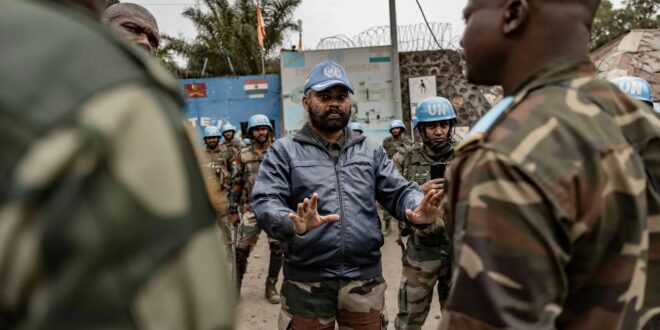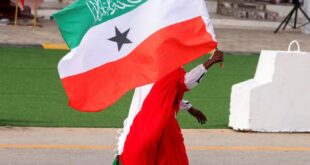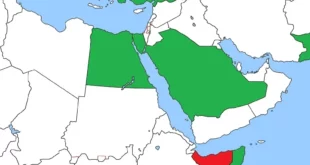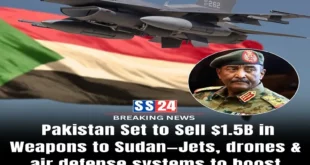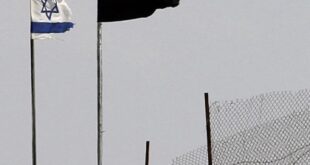Demonstrators have accused international forces of failing to deter armed groups responsible for a wave of deadly attacks.
At least 15 people, including three U.N. peacekeepers, have been killed and 60 others injured in the east of the Democratic Republic of Congo, in an escalation of dayslong protests against the United Nations in a mineral-rich region that has been ravaged by incessant deadly violence.
Protesters have been demanding the departure of the peacekeeping forces, accusing them of failing to protect civilians from a recent surge of attacks by the militant groups that have terrorized the region for years — leaving hundreds dead or injured and forcing more than 160,000 people to flee their homes this year alone.
Several government officials and a youth group allied with the ruling party have in recent weeks stoked anger at the U.N. forces.
On Tuesday, two Indian police officers and one member of Morocco’s military were killed, and an Egyptian police officer was injured, when protesters breached the United Nations compound in Butembo, a city in the province of North Kivu, Farhan Haq, a deputy U.N. spokesman, said at a briefing in New York on Tuesday.
“Violent attackers snatched weapons from Congolese police and fired upon our uniformed personnel,” Mr. Haq said. He said that “hundreds of assailants” had targeted other U.N. bases in North Kivu by “throwing stones and petrol bombs, breaking into bases, looting and vandalizing and setting facilities on fire.”
Their actions, he said, were “fueled by hostile remarks and threats made by individuals and groups against the U.N., particularly on social media,” though he did not say whether the individuals or groups were associated with the government.
The U.N. secretary general, António Guterres, wants it known that any attacks against the peacekeepers “may constitute a war crime,” Mr. Haq said.
The Congolese government expressed regret over the deaths on Tuesday and called for calm from the population in the region. “Nothing can justify any form of violence,” Patrick Muyaya, a government spokesman, said at a news conference in Congo’s capital, Kinshasa.
Mr. Muyaya also said that the authorities would carry out an investigation into the attacks.
Demonstrators had blamed the United Nations for the killing of protesters, but Khassim Diagne, the acting head of the U.N. peacekeeping mission in the country, told reporters that peacekeeping forces had not fired at those who breached their bases.
Mr. Haq said that the global body’s forces had been “advised to exercise maximum restraint, using tear gas to disperse protesters and only firing warning shots when U.N. personnel or property are under attack.”
The violence added to the mounting challenges confronting Africa’s second-largest country, whose 92 million people face rising food prices, slow economic growth and outbreaks of disease, including Covid-19, measles, cholera and Ebola.
The security situation in the country’s east is deteriorating, observers said, and the U.N. forces have been limited in their ability to stop the multiple rebel groups operating across a vast region.
During a trip to eastern Congo this month, the president of the Congolese Senate, Modeste Bahati Lukwebo, demanded the departure of the U.N. forces. “They must pack up,” he said, adding, “We ourselves will ensure peace, security and territorial integrity.”
The dissatisfaction was underlined by Lucha, a Congolese civil society group, which said in a statement that the United Nations had failed to protect the public despite significant diplomatic, logistical and financial backing.
Lush and rich in minerals, Congo’s eastern regions have faced devastation for decades from more than 120 militant groups operating in the provinces of North Kivu, South Kivu and Ituri, according to the Kivu Security Tracker, which documents violence and abuses in the region.
In November, Congo and Uganda began a joint operation against the Allied Democratic Forces, one of the deadlier rebel groups in the region that has even carried out attacks in the Ugandan capital, Kampala.
In February, the authorities accused another militia, the Cooperative for Development of Congo, of massacring about 60 people, including children, as they slept in a makeshift camp.
Violence also flared in mid-June when another rebel group, known as M23, carried out a spate of attacks in which dozens of people were killed — some executed at close range, according to Human Rights Watch. Congo has accused Rwanda of backing the group, leading the Congolese president, Félix Tshisekedi, to suspend bilateral agreements with Rwanda. Concerns over the Rwandan role in the escalating violence in Congo led Senator Robert Menendez, the Senate Foreign Relations Committee chairman, to place a hold in Congress last week on U.S. security assistance to Rwanda.
Many Congolese have questioned the effectiveness of the United Nations peacekeeping forces, who have been stationed in the country in one form or another since 1999.
Officially known as the United Nations Organization Stabilization Mission in the Democratic Republic of Congo, the current mission was mandated in 2010 by the Security Council to help safeguard civilians, deter armed groups and work closely with the government in peace efforts. With a budget of over $1 billion, the mission had 12,835 uniformed personnel as of June, with troops and military members drawn from at least 10 countries, including Bangladesh, Indonesia, Malawi and Uruguay, the U.N. said.
Reagan Miviri, a conflict analyst at the Congolese research institute Ebuteli, said the latest protests presented an opportunity for politicians looking to distract the public from their own failures to deliver peace, economic growth and justice ahead of the 2023 elections.
Demonstrations began on Monday in front of the United Nations base in Goma, the capital of North Kivu, and then spread to other towns in the province, including Butembo.
For the public, the protests represent a culmination of years of frustration with the United Nations over its failure to stop the vicious cycles of violence and displacement, said Vava Tampa, an activist and founder of the rights group Save the Congo.
“These protests are a cry for peace,” Mr. Tampa said in a phone interview. “They are telling the U.N. that if you cannot protect us, then what’s the point of you being here.”
 Eurasia Press & News
Eurasia Press & News
